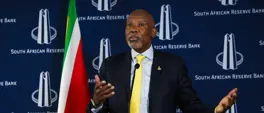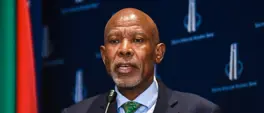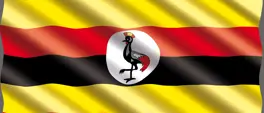Reimagining Africa's economic power through integration and innovation
Kopano Mohlala
27 June 2025 | 13:15Sponsored by RMB CIB

The question is no longer whether the continent has potential, but how that potential can be turned into wealth for Africans.
Acclaimed journalist Crystal Orderson, who specialises in economic and political affairs concerning the African continent, joins 702's Bongani Bingwa to discuss the strategies, forces, and changes that are transforming Africa's place in the world economy.
With a young, growing population and untapped resources, Africa holds structural advantages that many global economies are looking toward.
With 1.3 billion inhabitants and a combined GDP of more than $3 trillion, the continent is establishing itself as a significant force in a world shaken by geopolitical unrest.
"We have critical minerals. We have a youth population. And despite global uncertainties, African economies are finding ways to move forward."
- Crystal Orderson, Journalist
The African Continental Free Trade Area (AfCFTA) aims to increase intra-African trade, support local production, and unite disparate markets into a single trading bloc.
Akinwumi Adesina, outgoing President of the African Development Bank, asserts that to achieve scaled growth, Africa must "produce local, buy local."
Remittances, which are frequently undervalued, are now a vital component of economic stability. In 2024, over $100 billion was sent home by Africans living overseas, significantly surpassing traditional donor aid to the continent.
"A big thing is Africa's remittances. There's really a sense Ubuntu when it comes to remittances, and for many Africans, it is a lifeline, but also it then creates that extra money to start the business…"
- Crystal Orderson, Journalist
Meanwhile, foreign direct investment overtook traditional donor aid in 2023, reaching $52 billion. This momentum is being harnessed by countries like Ghana and Ivory Coast to enhance agro-processing and reduce their dependence on food imports. In 2024, Ghana's "Planting for Food and Jobs" programme alone contributed to a 30% decrease in food imports.
African leaders have now approved the African Financial Stability Mechanism, a pioneering initiative led by the African Development Bank, to reduce reliance on external financial systems.
The aim is to boost resilience. According to Orderson, the fund will assist with debt management and serve as a buffer during liquidity crises.
Africa has only recently established its own financial safety net, unlike regions such as Europe or Asia. The facility will feature its own credit rating agency, enabling nations to access capital markets on their own terms. Preliminary estimates suggest that debt servicing costs for African countries could be reduced by $20 billion.
"This facility will give African countries that financial cushion, because we don't have it, unlike Europe or Asia, who have that kind of mechanism in place."
- Crystal Orderson, Journalist
The story of Africa is changing. A new economic chapter is emerging, marked by financial integration, the expansion of the private sector, the strategic use of remittances, and audacious continental policies.
"We learn lessons from the past, but it's about how we add value to all of this. As the world changes, as geopolitics shift, and everyone looks to the continent again."
- Crystal Orderson, Journalist
You can catch up on episodes you've missed on the RMB Africa Focus Series page on Primedia Plus.
Get the whole picture 💡
Take a look at the topic timeline for all related articles.

















